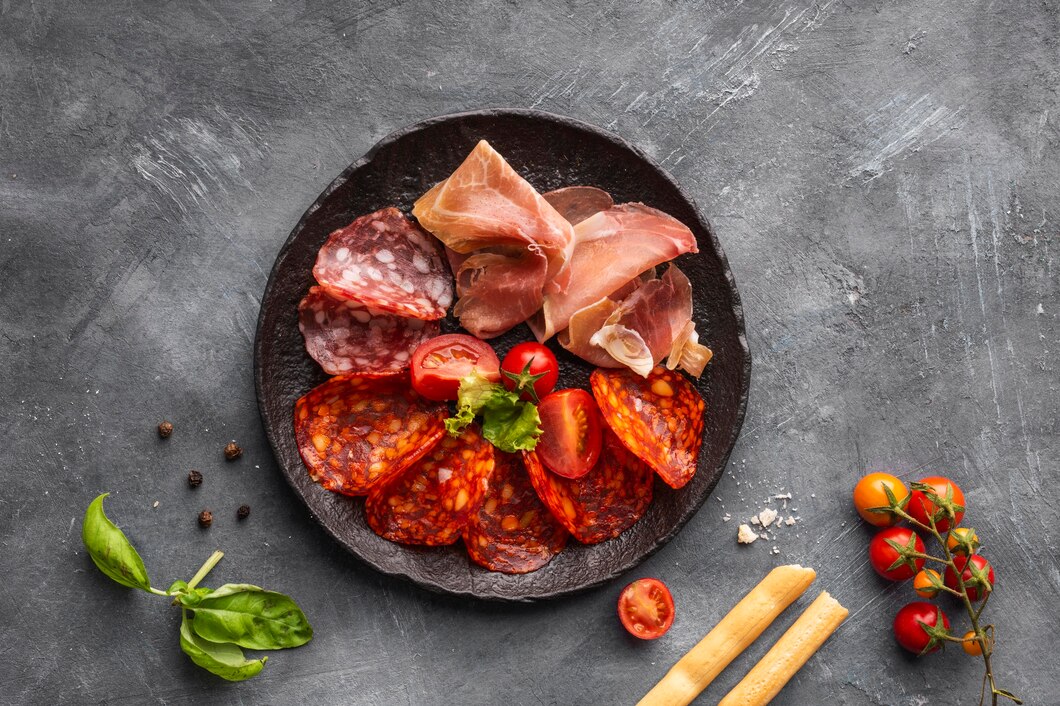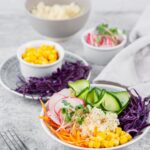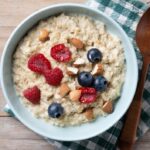Psoriasis is a chronic skin condition that causes skin cells to multiply rapidly, leading to the development of thick, scaly patches on the skin. While genetics and environmental factors play a significant role in the onset of psoriasis, diet can also influence the severity of symptoms. Certain foods can trigger inflammation, which can exacerbate psoriasis flare-ups. For South Africans dealing with this condition, being mindful of dietary choices is crucial. Here are 20 foods you should avoid to help manage psoriasis symptoms effectively.
- Red Meat: High in saturated fats, red meat can contribute to inflammation in the body. Limiting consumption of beef, lamb, and pork may help reduce psoriasis flare-ups.
- Processed Foods: Foods like packaged snacks, processed meats, and fast food are often loaded with trans fats, sugars, and preservatives, all of which can promote inflammation and worsen psoriasis symptoms.
- Dairy Products: Dairy, especially full-fat varieties like cheese, butter, and cream, can trigger inflammation in some people with psoriasis. Consider switching to plant-based alternatives like almond milk or soy yogurt.
- Gluten: For some individuals with psoriasis, gluten, found in wheat, barley, and rye, can exacerbate symptoms. A gluten-free diet may help in reducing flare-ups.
- Alcohol: Alcohol can dilate blood vessels and cause inflammation, potentially worsening psoriasis symptoms. It may also interfere with the effectiveness of certain psoriasis treatments.
- Sugary Foods: Excess sugar consumption can lead to spikes in blood sugar and insulin levels, promoting inflammation. Sweets, sodas, and pastries should be limited or avoided.
- Nightshade Vegetables: Tomatoes, potatoes, eggplants, and peppers are part of the nightshade family, which some studies suggest may trigger inflammation in psoriasis patients. While not everyone with psoriasis is affected, it’s worth monitoring your response to these vegetables.
- Fried Foods: Fried foods, particularly those cooked in unhealthy oils like vegetable or canola oil, can increase inflammation levels due to their high trans fat content. Opt for grilled or baked alternatives instead.
- Refined Carbohydrates: White bread, pasta, and other refined carbs can cause a rapid increase in blood sugar, leading to inflammation. Whole grains are a better alternative for maintaining stable blood sugar levels.
- Processed Sugar Substitutes: Artificial sweeteners, like aspartame and saccharin, may trigger inflammation in some individuals with psoriasis. Natural sweeteners like honey or maple syrup can be better options.
- Certain Seafood: Some types of seafood, particularly shellfish, can trigger allergic reactions or inflammation in certain individuals, which may worsen psoriasis symptoms. Be mindful of how your body reacts to different types of seafood.
- Eggs: Eggs, particularly the yolks, contain arachidonic acid, which has been linked to inflammation. If you notice that eggs worsen your psoriasis, consider reducing or eliminating them from your diet.
- Soy Products: While soy is a common alternative for those avoiding dairy or meat, it can cause inflammation in some individuals with psoriasis. Pay attention to how your skin reacts after consuming soy-based products.
- Certain Condiments: Some condiments, like ketchup, barbecue sauce, and mayonnaise, contain high levels of sugar and preservatives that can trigger inflammation. Opt for homemade or natural alternatives without added sugars.
- Caffeine: Excessive caffeine intake, particularly from coffee or energy drinks, can lead to dehydration, which may exacerbate psoriasis symptoms. Moderation is key.
- Citrus Fruits: For some people with psoriasis, citrus fruits like oranges, lemons, and grapefruits can be a trigger. If you notice flare-ups after consuming citrus, it may be best to avoid them.
- Chocolate: While chocolate can be a delicious treat, it often contains added sugars and dairy, both of which can contribute to inflammation. Dark chocolate with minimal sugar may be a better choice if you want to indulge.
- Spicy Foods: Spicy foods can cause an increase in body temperature and blood circulation, potentially leading to flare-ups. If you notice a correlation between spicy meals and your psoriasis symptoms, consider reducing your intake.
- Margarine and Shortening: These fats are high in trans fats, which can increase inflammation. Use healthier fats like olive oil or avocado oil for cooking and baking.
- Processed Meats: Sausages, hot dogs, and other processed meats are high in preservatives and sodium, both of which can contribute to inflammation and worsen psoriasis symptoms. Opt for fresh, unprocessed meats if you choose to include meat in your diet.
Managing psoriasis involves more than just medical treatment; it also requires careful attention to diet. By avoiding these 20 foods, South Africans with psoriasis can take a proactive approach to reduce inflammation and potentially lessen the severity of their symptoms. While everyone’s body reacts differently to certain foods, monitoring your diet and recognizing triggers can play a crucial role in managing this chronic skin condition. Always consult with a healthcare provider or a nutritionist to tailor dietary choices that best suit your individual needs.








